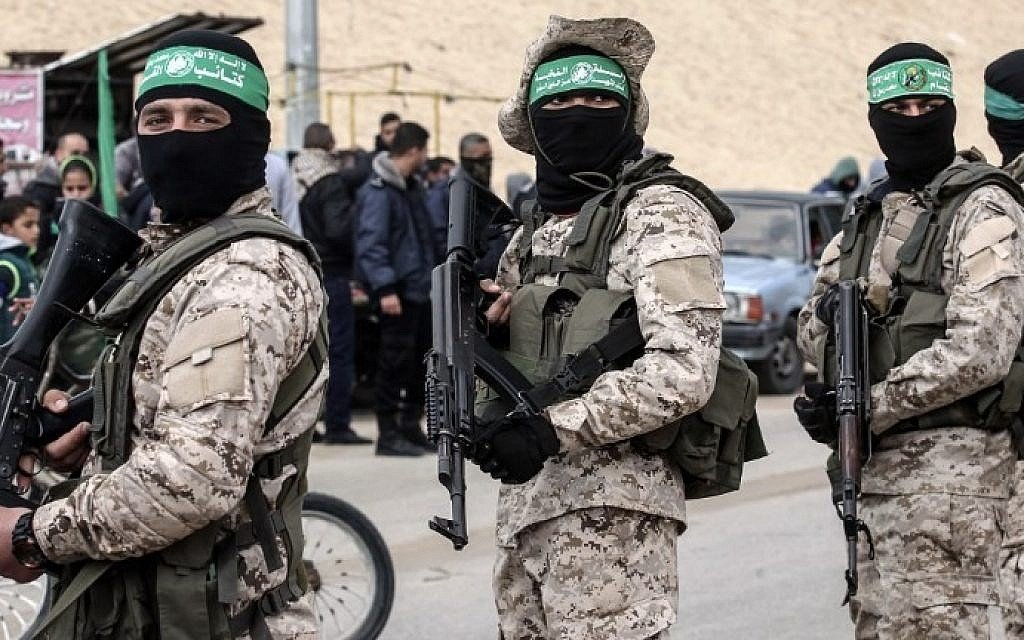
Background on Hamas and the Current Situation in Gaza
Hamas, founded in 1987 during the First Intifada, is a Palestinian Islamic organization with a socio-political agenda and a military wing. The organization emerged as a response to both occupation and the need for a structure to provide social services among Palestinians. Initially formed as an offshoot of the Egyptian Muslim Brotherhood, Hamas has since established itself as a significant political entity within the Palestinian territories, particularly Gaza, where it has governed since 2007 after a decisive victory in the parliamentary elections. The organization’s dual focus on resistance against Israeli occupation and social support has allowed it to maintain substantial grassroots support despite ongoing conflicts and international isolation.
The current situation in Gaza, especially following the escalation of conflict in October 2023, reflects deep-rooted tensions between Hamas and Israel. This recent outbreak of violence was initiated by a coordinated offensive by Hamas, which resulted in significant military engagements and civilian casualties. The intensity of the conflict drew international attention, raising urgent calls for peace and a return to negotiations. The flare-up occurred against the backdrop of shifting geopolitical dynamics, including the impact of former President Donald Trump’s election victory. Trump’s presidency was marked by controversial policies that greatly affected U.S.-Israel relations, including the recognition of Jerusalem as Israel’s capital and the withdrawal from the Iran nuclear deal. These moves influenced the conflict by strengthening Israel’s position, prompting Palestinian factions to adopt more aggressive stances in their political strategies.
Consequently, the October 2023 conflict illustrates not only the ongoing cycle of violence in the region but also the broader implications of international political developments on the Israel-Palestine conflict. The situation remains fluid, with both sides enduring heavy losses and a worsening humanitarian crisis. The urgency of achieving a sustainable resolution has never been more pressing, highlighting the necessity for renewed diplomatic efforts and inclusive dialogue.
Basem Naim’s Remarks: A Call for Ceasefire and Palestinian Statehood

In a recent interview with Newsweek, Basem Naim, a prominent official of Hamas, articulated a compelling plea for an immediate ceasefire in the ongoing Gaza conflict. His statements underscore the urgent need to halt hostilities, which have led to significant humanitarian repercussions for the population of Gaza. Naim emphasized that ending the violence is paramount for creating a conducive environment for dialogue and reconciliation. As discussions about peace continue, the necessity of a ceasefire becomes increasingly clear, highlighting the dire conditions faced by civilians caught in the crossfire.
Moreover, Naim’s remarks extended beyond the immediate cessation of hostilities. He called for the acknowledgment of legitimate Palestinian rights and advocated for the establishment of an independent Palestinian state. He emphasized the importance of Jerusalem as the capital of this future state, framing this demand within the broader context of Palestinian aspirations for self-determination. According to Naim, the recognition of these rights is essential to achieving lasting peace in the region, as it addresses the historical grievances that have fueled conflict for decades.
The implications of Naim’s comments are significant, as they resonate with many Palestinians who seek recognition and representation on the international stage. The call for statehood speaks not only to national identity but also to the fundamental rights of the Palestinian people to govern themselves and determine their future. Addressing these demands could potentially pave the way for negotiations and a sustainable resolution to the ongoing conflict, fostering an environment where both parties can engage meaningfully.
In conclusion, Naim’s statements reflect a critical moment, emphasizing the necessity of a ceasefire and the affirmation of Palestinian statehood. As the conflict persists, such calls for peace are imperative for the future stability and dignity of the Palestinian population.
Critique of U.S. Support for Israel and Its Impact on Regional Stability
In recent years, the unwavering support that the United States has provided to Israel has drawn considerable scrutiny, particularly from figures within the Palestinian leadership. Naim, a prominent Hamas official, has articulated concerns that such consistent backing, particularly during the tenures of various U.S. administrations, has significant implications for peace negotiations and the future of the Palestinian people. The perception that the U.S. stands firmly behind Israel, irrespective of the humanitarian crises that arise, fuels grievances that complicate diplomatic efforts in the region.
Critics argue that this steadfast allegiance to Israeli policies exacerbates tensions and undermines the viability of a lasting peace. The ramifications extend beyond mere political discourse; they influence the socio-economic conditions of Palestinians and contribute to a cycle of violence that undermines regional stability. When the U.S. supports military actions or policies that are viewed as oppressive or unjust, it inadvertently alienates segments of the Palestinian population and hardens their stance against Israel. This situation perpetuates an atmosphere where escalated hostilities seem inevitable.
Moreover, former President Trump’s close relationship with Israeli Prime Minister Netanyahu has raised questions about the impartiality of U.S. foreign policy in the region. Trump’s administration was marked by a series of pro-Israel actions, which many believe sidelined Palestinian interests and diminished the credibility of the U.S. as a mediator in the peace process. Recently, Trump’s criticisms of Israeli leadership have further complicated this dynamic, revealing fractures within the historical alliance and showcasing the shifting perceptions of U.S. policy. The duality of supporting Israel while acknowledging the need for Palestinian rights presents a significant challenge for future U.S. administrations, underscoring the necessity for a balanced approach that prioritizes regional stability and equitable resolutions for both parties.
The Way Forward: Prospects for Peace and Resolution
As the conflict in Gaza continues to escalate, the prospects for peace and resolution depend significantly on a multifaceted approach that addresses the underlying issues contributing to the unrest. One pathway to achieving lasting peace is bolstering international diplomacy. A new U.S. administration may play a pivotal role by re-engaging with Palestinian leadership and recalibrating its foreign policy to ensure a balanced approach that prioritizes human rights and humanitarian needs. Key stakeholders, including the European Union and regional powers, should also explore collaborative initiatives that promote dialogue and understanding among conflicting parties.
Grassroots movements within Palestinian society represent another vital avenue for fostering peace. Empowering local communities to engage in discussions focused on reconciliation can create a culture that encourages cooperation and mutual respect, circumventing the entrenched narratives that often fuel hostility. These community-driven efforts could be complemented by educational programs emphasizing peace-building and conflict resolution, helping to cultivate a generation more inclined towards dialogue than violence.
The effectiveness of negotiations cannot be overstated in this context. Establishing a framework for direct talks between Israel and Palestinian representatives, with the support of neutral third parties, could facilitate the delicate process of conflict resolution. Such negotiations should prioritize key issues, including territorial disputes, the status of Jerusalem, and the humanitarian situation in Gaza, aiming for comprehensive agreements that consider the legitimate aspirations of both sides.
Furthermore, an essential aspect of moving forward lies in addressing humanitarian needs. Ensuring access to basic services, such as healthcare and education, is crucial in rebuilding trust among communities. Therefore, a synergistic approach that combines diplomatic initiatives, grassroots participation, and vital humanitarian support can pave the way for a peaceful coexistence, ultimately fostering an environment conducive to mutual understanding.ion.